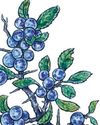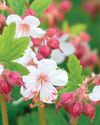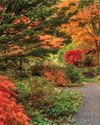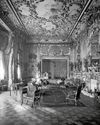Reinvigorated planting and a continuation of the spirit of the great age of the planthunters inspires George Plumptre on a visit to a famous Sussex garden

In 1895, James Comber became the first head gardener to be employed by Ludwig Messel, who acquired West Sussex’s nymans in 1890. It says a lot for the stability and continuity of nymans that the present head gardener, Stephen Herrington, who has been in charge for the past four years, is only the fifth head gardener at the estate since 1895.
Messel had the largesse and energy that typified the Edwardian garden-making era and much of nymans’ reputation rests on its exceptional plant collection, gathered on a series of overseas collecting trips by Comber’s son Harold. This, combined with Comber’s management and propagating skills, propelled nymans into the vanguard of 20th-century gardening in Britain—a position further secured by Messel’s son, Leonard. William Robinson and Gertrude Jekyll both visited and the Messels corresponded with Lawrence Johnston at Hidcote, which was also being developed at that time.
Within a grand structural framework of trees and architectural features that typified the period, new plants also arrived from expeditions by two other distinguished plant collectors, Frank Kingdon Ward and George Forrest. Between them all, over nearly three decades, they collected from far and wide—the Andes, the Himalayas, South America, South Africa and Tasmania—as Nymans established a reputation for rare and outstanding plants.
The National Trust took on the garden in 1953, six years after the main house was almost destroyed by fire. Much of the latter only survives now as a sombre shell. Mr Herrington is constantly responding to the garden’s heritage and, as he says, ‘working to keep alive the real tradition of wild origin and species collection’. It means that he aspires to a balance between the quantities of cultivars and species in the garden.
この記事は Country Life UK の June 13, 2018 版に掲載されています。
7 日間の Magzter GOLD 無料トライアルを開始して、何千もの厳選されたプレミアム ストーリー、9,000 以上の雑誌や新聞にアクセスしてください。
すでに購読者です ? サインイン
この記事は Country Life UK の June 13, 2018 版に掲載されています。
7 日間の Magzter GOLD 無料トライアルを開始して、何千もの厳選されたプレミアム ストーリー、9,000 以上の雑誌や新聞にアクセスしてください。
すでに購読者です? サインイン

Kitchen garden cook - Apples
'Sweet and crisp, apples are the epitome of autumn flavour'

The original Mr Rochester
Three classic houses in North Yorkshire have come to the market; the owner of one inspired Charlotte Brontë to write Jane Eyre

Get it write
Desks, once akin to instruments of torture for scribes, have become cherished repositories of memories and secrets. Matthew Dennison charts their evolution

'Sloes hath ben my food'
A possible paint for the Picts and a definite culprit in tea fraud, the cheek-suckingly sour sloe's spiritual home is indisputably in gin, says John Wright

Souvenirs of greatness
FOR many years, some large boxes have been stored and forgotten in the dark recesses of the garage. Unpacked last week, the contents turned out to be pots: some, perhaps, nearing a century old—dense terracotta, of interesting provenance.

Plants for plants' sake
The garden at Hergest Croft, Herefordshire The home of Edward Banks The Banks family is synonymous with an extraordinary collection of trees and shrubs, many of which are presents from distinguished friends, garnered over two centuries. Be prepared to be amazed, says Charles Quest-Ritson

Capturing the castle
Seventy years after Christian Dior’s last fashion show in Scotland, the brand returned under creative director Maria Grazia Chiuri for a celebratory event honouring local craftsmanship, the beauty of the land and the Auld Alliance, explains Kim Parker

Nature's own cathedral
Our tallest native tree 'most lovely of all', the stately beech creates a shaded environment that few plants can survive. John Lewis-Stempel ventures into the enchanted woods

All that money could buy
A new book explores the lost riches of London's grand houses. Its author, Steven Brindle, looks at the residences of plutocrats built by the nouveaux riches of the late-Victorian and Edwardian ages

In with the old
Diamonds are meant to sparkle in candlelight, but many now gather dust in jewellery boxes. To wear them today, we may need to reimagine them, as Hetty Lintell discovers with her grandmother's jewellery